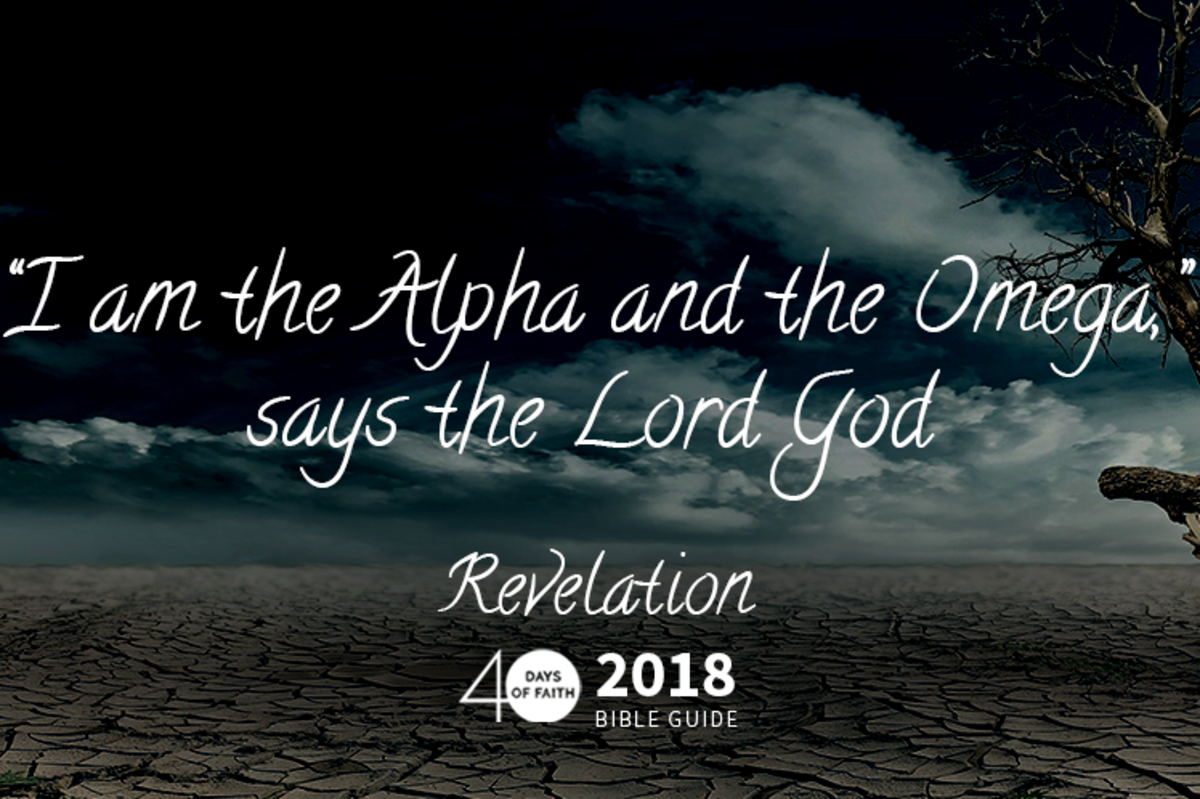Revelation’s Warnings Of Imminence

Referenced Texts
Genesis 41:46-57 Joseph was thirty years old when he stood before Pharaoh king of Egypt. And Joseph went out from the presence of Pharaoh, and went throughout all the land of Egypt. 47 Now in the seven plentiful years the ground brought forth abundantly. 48 So he gathered up all the food of the seven years which were in the land of Egypt, and laid up the food in the cities; he laid up in every city the food of the fields which surrounded them. 49 Joseph gathered very much grain, as the sand of the sea, until he stopped counting, for it was immeasurable.50 And to Joseph were born two sons before the years of famine came, whom Asenath, the daughter of Poti-Pherah priest of On, bore to him. 51 Joseph called the name of the firstborn Manasseh:[a] “For God has made me forget all my toil and all my father’s house.” 52 And the name of the second he called Ephraim: “For God has caused me to be fruitful in the land of my affliction.”53 Then the seven years of plenty which were in the land of Egypt ended, 54 and the seven years of famine began to come, as Joseph had said. The famine was in all lands, but in all the land of Egypt there was bread. 55 So when all the land of Egypt was famished, the people cried to Pharaoh for bread. Then Pharaoh said to all the Egyptians, “Go to Joseph; whatever he says to you, do.” 56 The famine was over all the face of the earth, and Joseph opened all the storehouses and sold to the Egyptians. And the famine became severe in the land of Egypt. 57 So all countries came to Joseph in Egypt to buy grain, because the famine was severe in all lands.
Ezekiel 7:8 Now upon you I will soon pour out My fury, And spend My anger upon you; I will judge you according to your ways, And I will repay you for all your abominations
Warnings Of Imminence
The revelation of Jesus Christ, which God gave unto him, to show unto his servants things which must shortly come to pass; ... (Revelation 1:1)
The Grace and Peace of our Lord Jesus Christ be with you all in all faith onto the salvation of your souls. I rejoice in hearing of your faith and confidence in the finished work of Calvary.
We have examined the likely date for the writing of Revelation in the last writing, and having, in that paper, establish the possible “early” date of the mid-50s to the mid-60s, it seems proper at this point to spend some time considering the “Warnings Of Imminence” given in the book of Revelation for its fulfillment.
The writer of the book of Revelation (the apostle John) tells his readers, in the very first verse, that the things they are about to read “must shortly come to pass.” The fact that this warning is repeated both in the beginning of the book of Revelation and, also, at the end, is proof positive that the imminence of Revelation’s fulfillment was a major theme of the document.
The student of the book of Revelation must notice the recurring warnings for the imminent fulfilling of its prophecies:
1:1 “The revelation of Jesus Christ, which God gave unto him, to show unto his servants things which must shortly come to pass; ...”
1:3 “Blessed is he that readeth, and they that hear the words of this prophecy, and keep those things which are written therein: for the time is at hand.”
22:6 “And he said unto me, These sayings are faithful and true: and the Lord God of the holy prophets sent his angels to show unto his servants things which must shortly be done.”
22:10 “And he saith unto me, Seal not the sayings of this book: for the time is at hand.”
Appearing at the beginning, and at the end of the prophecies, these warnings take the position of bookends which framed the events being foretold.
Also, notice that the warnings of imminence are in the form of a couplet. The couplet is: “must shortly come to past,” and “the time is at hand.” This same heads up is given both in the beginning and at the end of the book (see 1:1, 3 compare to 22:6, 10).
(Another parallel is found between 1:7 where Jesus is said to be coming in clouds, and 22:7, 12 where Jesus declares “Behold, I come quickly.”The coming of the Lord spoken of here will be explained in another writing.)
Here, we will examine the question of what is to be understood by “must shortly come to pass,” and “the time is at hand.” How is one to understand the apostle’s meaning of “shortly” (see 1:1; 22:6), and “at hand” (see 1:3; 22:10), as he uses these terms regarding time?
For the Futurists to maintain their position, John’s “shortly” and “at hand” must be understood as not having been answered by two millennia; since John gave these prophecies two thousand years ago. When one considers the time reference to John’s point in time, two thousand years hardly seems a “short time;” and, most assuredly not a time “at hand.” Any honest exegesis of these verses reveals the warning to be one of imminent fulfillment.
There is no escape for the Futurist by suggesting that it was John’s perception that the fulfillment would be imminent, when God had proposed not to bring it to fruition for two thousand years in the future. In the first place, John prophesied by inspiration of the Holy Spirit. If we accept this premise, then these verses are no longer John’s ideas, but the inspired Word of God. Now, the question is: Did the Holy Spirit lie? Did John lie on the Holy Spirit? Or, was the Holy Spirit confused? Obviously, No—to all three of the preceding questions.
Therefore, we must accept the truth that the Holy Spirit—not John—said, the things which were being foretold in the prophecies “must shortly come to pass,” because “the time is at hand.”

Two Thousand Years Is Not A Short Time
When a unit of measure is put forth, it is being compared to a certain standard. The standard here is TIME itself. Human time that began with Adam’s creation, or better: from Adam and Eve’s expulsion from the Garden. At the time of John’s prophecies, in the book of Revelation, there had only been four thousand years (give or take) of human history, or of time. Now, if all time (humanly speaking) consist of only four thousand years, when John (through the inspiration of the Holy Spirit) measured out a time in which the book of Revelation would be realized, and his reference was: “shortly”—it is understood that the “shortly” is in reference to human time, which was four thousand years. Now, 2000 years is one half of 4000, and does not compute to “shortly.” As if John (or, better—the Holy Spirit) sensed the twisting of “shortly” by those seeking pretexts, he wrote as the couplet: “the time is at hand.” One would ask, “What sensible person would attempt to suggest that the statement “the time is at hand” references a time more than two thousand years yet into the future?”
There is no relief for the Futurist to say that God exists in eternity, and two thousand years is a short time for Him. The very fact that God does exist in eternity excludes Him from time altogether. Therefore, there is no SHORT or LONG time with God. In fact, there is no time with God; there is only NOW (reflected in the name of God, Yahweh—the One Who Exists; seen in the name, “I Am” [Exodus 3:14]). Time is always understood in relation to creation, not the Creator.
The Law of First Mention.
When one considers the “Law Of First Mention” For the statement “shortly,” one is taken to Genesis 41:32. Joseph had just interpreted Pharaoh’s dream of the fat and lean kine (cattle), and good ears and thin ears of grain; then in verse 32 the Bible says,
“And for that the dream was doubled unto Pharaoh twice; it is because the thing is established by God, and God will shortly bring it to pass.”
From verses 46-57 we are made to understand that the prophesied events began to be fulfilled immediately, thus the understanding of the term “shortly.” (Also see Ezekiel 7:8.) Therefore, when John wrote under the inspiration of the Holy Spirit that the prophecies of Revelation would “shortly come to pass,” the intended understanding was IMMEDIATELY! The thought of two thousand years into the future for a fulfillment of these prophecies is beyond sound biblical exegesis.
Now, it must be pointed out that the book of Revelation culminates with the Great White Throne Judgment, and the beginning of eternity-future, with the new Earth and the new Heaven (see chapters 21 and 22). Therefore, the prophet John is telling his readers that his prophecies were to began being fulfilled immediately, and were to continue to unfold throughout human history. To this end, John gave the outline of Revelation (and the key to its interpretation) in chapter 1 and verse 19:
“Write the things which thou hast seen, and the things which are, and the things which shall be here after;...”
This verse, and the “Warnings of Imminence,” along with the early date of the writing of the book of Revelation demonstrates why the Historicist interpretation of the book of Revelation is the correct one.
Furthermore, in that the prophecy began being fulfilled immediately after being given, it is most likely that much of the references to tribulation, the beast, the mark of the beast, etc., were fulfilled during the Roman/Jewish War (A.D. 63-70).
It is my prayer that these stars of truth will help you all navigate your way through the prophecies given in the book of Revelation; not only in Revelation, but, in all biblical passages which speak of future events.
May the Lord of all revelation keep you confident in all His promises.
Apostolically Speaking
☩ Jerry L Hayes
Read More From The Bishop On Kingdom Theology
- The Nature of the Kingdom of God
The Kingdom of God. What is it? What is its make-up and nature. This article ventures into these questions. - The Millennial Reign of Christ
The subject under review in this writing is what is commonly called the “Millennial Reign of Christ.” The word “millennium” means: one thousand. but, is the 1,ooo yrs literal or figurative. - Did the Prophets Write of the Church?
It is argued by dispensationalist that the OT prophets did not see the Church in their prophecies. In this view the OT prophecies only pertain to Jews. This article challenges that position. - God's New Covenant With Israel
The purpose of the writing is to show the event of Calvary to be the cutting of God's promised New Covenant with Israel, thus demonstrating the Church to actually be the Israel of promise. - “Joel’s Messianic Age, the Church of Jesus Christ”
When the Prophet Joel wrote of the messianic age he had the Church age in view. This article is continuing the narrative of how the prophets foresaw the Lord's church. - Christ's Church Is The Tabernacle of David
The prophets of the OT foresaw the Church; Amos spoke of it in terms of the Tabernacle of David being rebuild. James, the Lord's half brother, saw this in the Spirit and proclaimed it to be so. - "Malachi's Eucharistic Prophecy"
This article continues the narrative concerning the OT prophet's writing about the church age. This paper reviews the prophet Malachi's prophecy of the universal celebration of the Eucharist. - The Kingdom Teachings of Jesus, Part I
This article begins a series on the Kingdom teachings of Jesus. Here we look to Christ's own words concerning the Messianic Kingdom, its nature and particulars. - The Kingdom Teachings of Jesus, Part II
In this article several passages from the Gospel of Matthew are reviewed in regard to the Kingdom teachings of Christ. Matthew writes to inform his readers that Jesus established the throne of David. - The Kingdom Teachings of Jesus, Part III
Part III of the Kingdom teachings of Jesus looks at Mt 13, called "The Kingdom Chapter." Here, Jesus teaches 7 kingdom parables. The students of ecclesiology, and eschatology can not ignore this ch. - The Kingdom Teachings of Jesus, Part IV (The Coming of the Son of Man)
This 4th in a series of Kingdom Teachings of Jesus examines Mt 16:27-28; in particular the statement concerning some of His hears being alive when He returned with the holy Angels. - Daniel's Kingdom of the Son of Man
Our article deals with the Kingdom of the Son of Man as presented by the prophet Daniel. - The Crux of the Matter (A Kingdom Teaching)
It is amazing how much turns on the interpretation of the word "generation" as used by Jesus in Mt 24:34. In this writing we will explore what Jesus meant by "generation;" the crux of the matter. - Understanding the Question, A Study in Kingdom Theology
The subject matter of this paper is understanding the question, which is the genesis for the Olivet discourse. How may one arrive at the proper answer not understanding the question? - All these Things (A Kingdom Teaching of Matthew 24)
The article before us examines the "signs" Jesus gave in Mt 24. Signs, which Jesus said would appear before the end of the world/age.
You Would Enjoy This Book By Bishop J L Hayes









